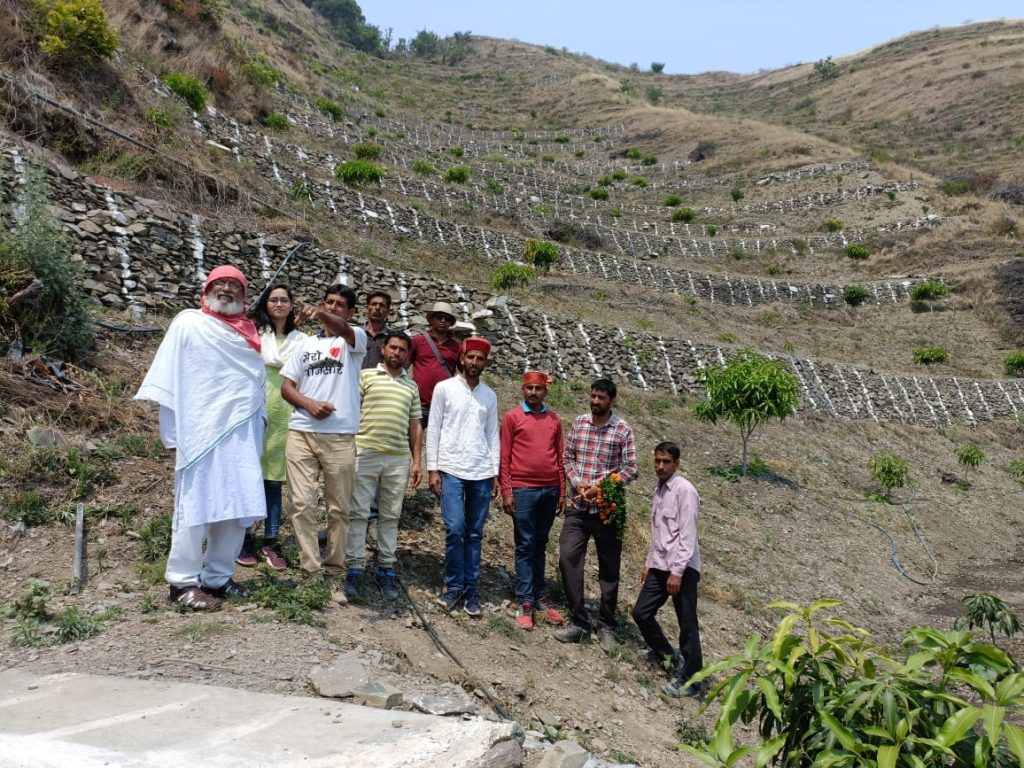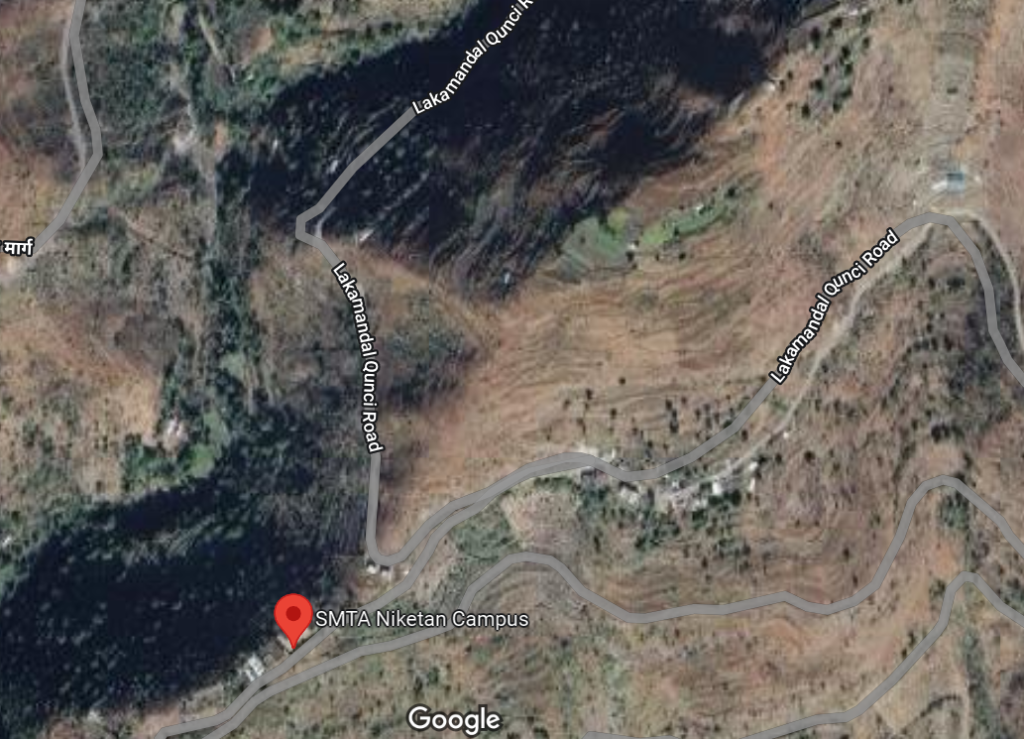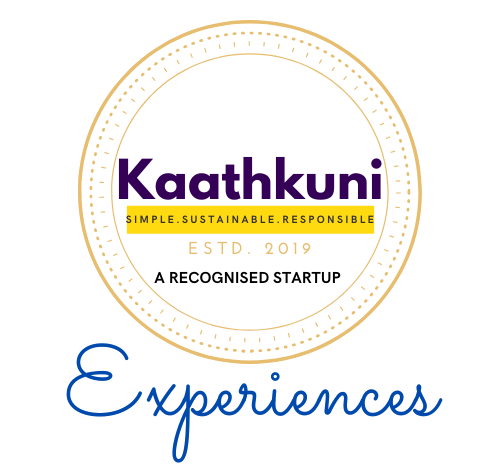The Pedagogy:
Kaathkuni Edu-Tourism envisions creating communities that complement their classroom education (3R: Reading, wRiting, and aRithmetic) with REAL life Experiential learning using the new concept of 3H (Bright Head, Kind Heart, and Skilled Hands). Our fellowship experience from HIAL Ladakh and a long association with HESCO (Padma Vibhushan Dr. Anil Joshi Ji) has given us a purpose to fill in the gaps of Experiential learning in the current education system. Our vision also resonates with the NEP 2020, the government’s genuine efforts to revamp the current education system.
To successfully implement the 3H we design experiences and workshops that involve:
- Learning by doing: Well-planned and uniquely assessed experiential learning programs that stimulate intellectual curiosity, reflection, compassion, creativity, and skillfulness. Kaathkuni encourages learner development through Live Learning Labs that supplement the traditional academic setting. These opportunities instill qualities of leadership, cultural awareness, and entrepreneurship.
- Collaborative teaching and exchanges: We strongly believe in Peer-to-Peer learning from REAL life teachers and achievers. The Himalayan rural region is beaming with achievers, changemakers, and sustainable practices. Our community works in the Himalayan region have exposed us to great unsung heroes, Rural entrepreneurs, social workers, and self-help communities from the region. They hold a treasure of learnings for urban students who would lead India’s growth story. We have collaborated with such experiential teachers to take us through their entrepreneurial journeys and teach us some REAL-life skills. In exchange, our urban students can help them create systems, expose them to modern technology and business knowledge that could help maximize business and contribute to the circular economy and assist in reversing migration in the region.
- Exposure to research and innovations: These programs promote Mutual Experiential learning and encourage free thinking. The mix of REAL life and well-educated entrepreneurs would result in Peer-to-Peer learning and would fill in the voids in both parties resulting in developing solutions to address some of the key challenges experienced by mountain communities and students alike.
Today, we all live in a world of the digital economy, which moves faster than we had ever anticipated, and brings to us many social & environmental challenges that were previously unknown. Today, more than ever before, there is a growing need for responsible entrepreneurs who value the environmental and social impact of the businesses they engage in and look and think for more innovative ways to give back to society.

The Program:
A 2 night 3 days immersive program Ex Dehradun that involves the above pedagogy and the below details:
- Visit Innovative Live Labs (Sustainable businesses at location)
- Interaction with some REAL changemakers of the Himalayan region. Understanding their business model, struggles and hardships faced due to the geography and politics of the region and appreciating their business model
- Hands-on experiential sessions at the region’s biggest Fruit Farm that is revolutionizing the economics of the community
- Exposure to Social Entrepreneurship works being undertaken by the biggest NGO of the region (HESCO, Padma Vibushan Dr. Anil Joshi Ji) that are catalyzing REAL upliftment and changes to the region
- Experiencing Rural Living and sustainable practices of the Himalayan region
- Living in a pristine and pure environment with no concept of AQI. Drinking straight out of the mountain springs and experiencing slow living in the true sense
- Gamified learning sessions, team building exercises, developing communication skills, resilience, empathy, exposure to simple sustainable, and responsible living
- Discussions on Eco-Responsive buildings, Youth leadership, Responsible tourism, and circular economy with real-life experiential exposure to the same
- Sharing circle in the evenings to enhance the exchange of ideas and share learning experiences within the group
- The added value of adventure and excitement through a short hike to a beautiful stream and organized visits to tourist locations like Tiger Fall and the Chakrata market

Students will get to work and learn from real-life businesses.
The Itinerary:
Day 1:
Departure Dehradun AM for reaching the accommodation site by noon. Short visit to Ashoka Relics at Kalsi. Breakfast at Kalsi. On the way interacting with a Rural social entrepreneur dealing in Organic Farming and trading.
Lunch at the accommodation site (Jakhadhar) post familiarization with the site.
Post lunch Team activity, followed by Tea.
Free time for self-reflection and retrospection followed by dinner and sharing circle.
Day 2:
Wake up to a Yoga session followed by a small trek through a newly developed social enterprise i.e. Fruit Farm to the mountain top with a beautiful natural stream and great Himalayan view of snow-clad ranges.
Breakfast at the mountain top followed by a session with the Rural Entrepreneur of the Fruit orchard, hands-on experiential sessions on fruit farming, and challenges faced on the tribal setup.
Educative activities and games. A walk back to base.
After rest and ablutions, depart to Tiger Falls for a fun-filled visit.
Evening visit to Chakrata Market area.
Return to base for dinner and sharing circle/retrospection and fun-filled evening.
Day 3: Breakfast followed by a small ceremony. Leave base for Dehradun
The outcomes of experiential learning on social engagement and societal impacts-
- Real Understanding of Rural Entrepreneurs and Businesses
- Rural-Urban Connect
- Building Empathy, Curiosity, Observation, Teamwork, Curiosity, adaptation, resilience, innovation, self-reliance, empathy leadership skills, effective communication, sustainability
- Socio-Economic understanding
- Environment and Sustainable Business Practices (ESBP)
- Unlocking Rural Potential (URP)
- MSME Development
